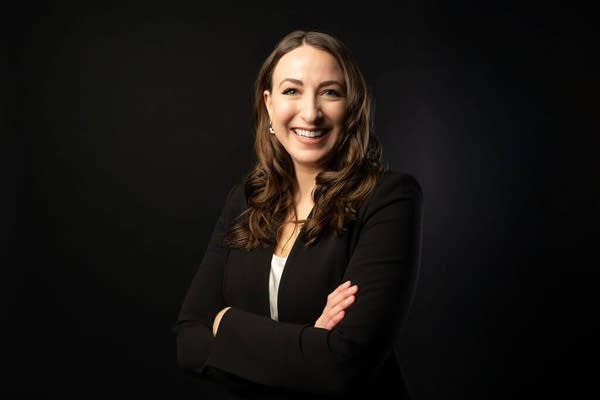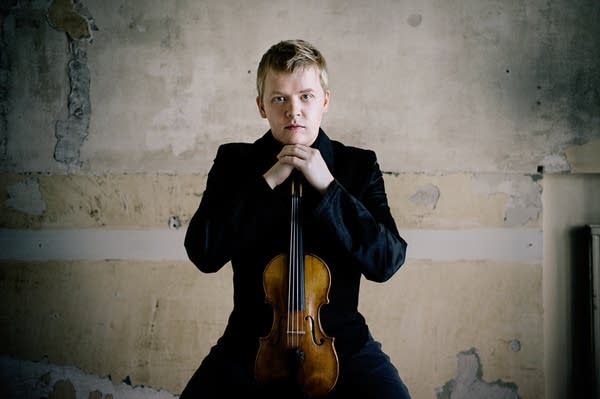Fast away the old year passes, as the song says, and in its waning days we'll take a look back, in the time-honored fashion, at the classical music headlines of 2014 — stories about work and money, controversies and surprises, achievements and awards, and inevitably, those men and women who left us during the past year.

One of the biggest news stories in classical music unfolded here in Minnesota. After a lockout of historic length, which resonated throughout the orchestral world, the management and musicians of the Minnesota Orchestra settled their differences, and returned to regular concerts. Osmo Vänskä, who had resigned, returned as music director. The Orchestra could also boast a 2014 Grammy win, for its Sibelius symphony disc, and a newly remodeled Orchestra Hall to play in.
Perhaps the long Minnesota lockout served as a cautionary tale to other organizations. Lockouts loomed at the Atlanta Symphony and at the Metropolitan Opera, but Atlanta's ended after a month, and a lockout at the Met was averted after some highly charged negotiations. In March, the San Diego Opera announced that it was going out of business, only to reverse its decision two months later.
The Saint Paul Chamber Orchestra can also claim some Grammy luster: it appeared on a Grammy-winning disc by Dawn Upshaw, of music by Minnesotan Maria Schneider. The SPCO continues to announce the arrival of stellar artistic partners; the roll call in 2014 included pianist Jeremy Denk, violinist Patricia Kopatchinskaja, and (arriving in a future season) clarinetist Martin Fröst.
One of the year's stranger news stories broke in January. In Milwaukee, violinist Frank Almond was walking to his car, when he was shot by a stun gun and robbed of his Stradivarius. Happily, he finally got his instrument back. The whole story was outré enough to be covered in the glossy pages of Vanity Fair.

Classical music and mass culture mingled: Renée Fleming and Joyce DiDonato sang the national anthem at premier sport events (the Super Bowl and World Series, respectively). And the Seattle Symphony Orchestra garnered attention by inviting, as a guest soloist, the rapper Sir Mix-A-Lot.
In May, mezzo-soprano Tara Erraught came in for criticism — not for her singing, but because of the visual impression she made on some London critics in Strauss's Rosenkavalier. "Dumpy" was one of the unflattering words used. Legitimate journalism, or chauvinism from male critics? Much debate ensued — Ms. Erraught's career seems unaffected by what came to be called, inevitably, "Tara-gate."

Two musical Adamses made the news. John Adams's opera The Death of Klinghoffer sparked protests when it was scheduled by the Metropolitan Opera. Live performances of the opera were given as planned, though broadcasts were canceled. John Luther Adams, sometimes confused with his near-namesake, came in for recognition in his own right when his piece, "Becoming Ocean," won the Pulitzer Prize.
Other notable awards went to pianist Rafal Blechacz (the Gilmore Award) and to Riccardo Chailly and the Gewandhaus Orchestra (Gramophone's Record of the Year, for their new set of Brahms symphonies).
Lastly, let's remember some of the figures who left us in 2014.
The classical world said farewell to some acclaimed conductors: Claudio Abbado, masterly in Mahler, Italian opera and much else; the prodigiously gifted Lorin Maazel; and Julius Rudel, for decades a beloved figure on the American opera scene. Frans Brüggen was both a conductor and recorder soloist; Rafael Frühbeck de Burgos was especially noted in the music of his native Spain.

Instrumentalists who left us this year included the eloquent oboist Ray Still, and Ursula Holliger, one of the few harpists to become an internationally known soloist.
Opera fans also mourned the loss of star singers, such as sopranos Licia Albanese, Anita Cerquetti, and Magda Olivero. All rich in years, they were links to fabled bygone eras of opera. Dutch singer Cristina Deutekom excelled in the coloratura repertoire, and Carlo Bergonzi was exemplary in Verdi's heroic tenor roles.
A leading musicologist, Joseph Kerman, died in 2014. He once dubbed Puccini's Tosca a "shabby little shocker." His influence on music scholarship, though, goes far beyond that often-repeated phrase.
Several deaths touched home for Minnesota music lovers. Christopher Hogwood, who contributed decisively to the international early-music movement, was music director of the Saint Paul Chamber Orchestra from 1988 to 1992. Stephen Paulus, composer and co-founder of today's American Composers Forum, was always recognized in Minnesota — but his "Pilgrim's Hymn" propelled him to a new level of celebrity in the choral world.
And at Minnesota Public Radio, we said goodbye to broadcaster extraordinaire Leigh Kamman, host of The Jazz Image. Though his feet were planted firmly in the world of jazz, there are more than a few classical listeners with fond memories of late-night hours spent in his company. We'll miss him, and will remember him with a public event on Sunday, Jan. 25, further details to be announced.
Love the music?
Show your support by making a gift to YourClassical.
Each day, we’re here for you with thoughtful streams that set the tone for your day – not to mention the stories and programs that inspire you to new discovery and help you explore the music you love.
YourClassical is available for free, because we are listener-supported public media. Take a moment to make your gift today.










